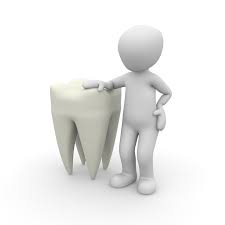When most of us hear the word ‘fluoride,’ we automatically think of dental treatments and the prevention of cavities. For decades, fluoride has been added to toothpastes and water supplies in many countries, and it’s widely accepted as a safe, simple, and cost-effective strategy for improving the dental health of entire populations.
Increasingly, however, people are beginning to question whether the potential pros of fluoride outweigh the cons and whether they should be seeking non-fluoridated options for themselves and their families.
What exactly is Fluoride?
Fluoride is a mineral which occurs in several different forms. One form, calcium fluoride, is found naturally in many water supplies and soils and exists in high concentrations in certain regions. In fact, an observant dentist in one of these regions (Colorado Springs, in the USA) was the first to observe that children drinking from a water supply naturally high in fluoride seemed to have fewer cavities than those from other areas.
Today, however, most people receive the majority of their fluoride intake from fluoridated public water supplies and toothpastes. These usually contain synthetic fluoride in the form of sodium silicofluoride or hydrofluorosilic acid, which are both formed as by-products of industrial processes such as manufacturing fertilisers.
The Three Main Benefits
There are three main benefits of using fluoride: its established reputation within the scientific community, its role in preventing tooth decay, and the ease with which it can be used as in public health programs.
Fluoride’s Positive Reputation
Fluoride use was widely researched in America in the 1950s and 1960s, and in 1962 the Center for Disease Control recommended fluoridation of water supplies as a preventative health measure. Studies have shown promising trends, with fluoride use linked to decreasing rates of cavities and other dental problems. Most dentists today continue to recommend fluoride toothpastes and treatments, so it’s safe to say that this is a well-established practice in the world of dentistry.
Fluoride’s Role in Dental Health
The reason dentists recommend using fluoride is that it is believed to strengthen tooth enamel, which helps to prevent tooth decay and cavities. It can also be used to remineralise teeth, allowing small existing cavities to heal and preventing problems from worsening or even leading to the loss of damaged teeth. Dentists advise their patients to use a range of different fluoridated products, ranging from generic tubes of toothpaste stocked on supermarket shelves to specialized prescription treatments which are only used on medical advice.
Fluoride as a Simple Public Health Measure
Finally, supporters of fluoridation programs argue that adding this mineral to public water supplies is a cost-effective way to improve a community’s dental health and that it is particularly beneficial for those who can’t afford to access regular dental care. Likewise, adding fluoride to toothpaste is a cheap and efficient method for increasing intake without consumers needing to seek out specialised treatments or products.


